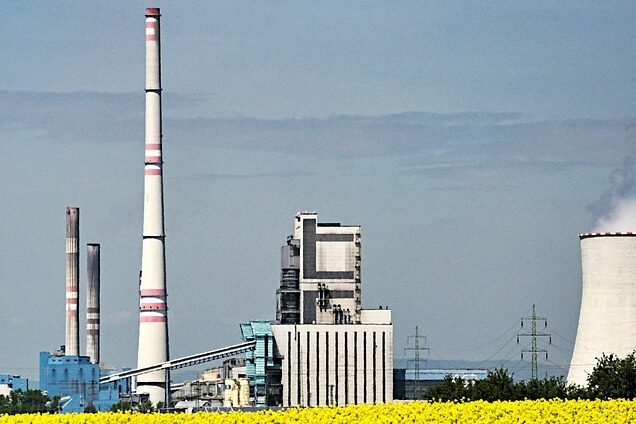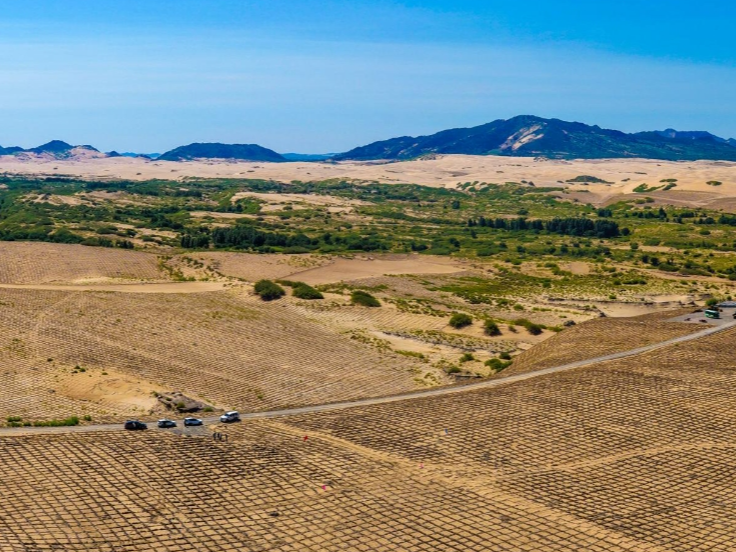- Since the climate goal of net zero emissions, the demand for biofuels has risen and the ecological environment has been destroyed

In July 2021, the European environmental protection organization "Transportation and Environment" (T&E) released the latest research data, saying that since 2011, the neighboring countries have vigorously produced palm oil, soybean oil and other oil-producing crops for export to Europe, Southeast Asia, South America and other regions. The forest area has been reduced by about 4 million hectares, resulting in the destruction of habitats for a large number of species.
It is understood that the agency quoted data from multiple energy market research institutions and analyzed the global biodiesel production and consumption situation and found that to meet the EU's biofuel demand, Southeast Asia needs to expand the palm tree planting area of about 1.1 million hectares, or Expansion of about 2.9 million hectares of soybean crops in South America means that a large number of virgin forests may be destroyed. Previously, many academic journals around the world have published articles that the expansion of soybean planting area is the main reason for the rapid degradation of the Brazilian Amazon rainforest and other important ecosystems. The reduction of forest area will also greatly reduce the level of carbon dioxide absorption by trees and accelerate the process of climate change.
Data show that the EU is currently the world's largest biofuel production area, palm oil, rapeseed oil and waste edible oil are its main sources of biofuels. At the same time, the EU is also the third largest palm oil consumer in the world, with a total annual import volume of approximately 5 million-6 million tons of palm oil. The European Union plans to increase the proportion of renewable fuels in transportation fuels to 25% by 2030. According to estimates by the European Commission, among the renewable fuels, the proportion of biofuels made from crops is expected to reach about 5.1%. From the perspective of the industry, the demand for vegetable oils such as soybean oil and rapeseed oil in the EU is likely to be still in a high-speed rising stage. To this end, T&E called on the EU to “stop providing financial support for biofuels made from all crops” by 2030.
It is reported that the Dutch Senate has recently formally passed the latest amendments to the Environmental Management Act, incorporating the EU Renewable Energy Guidance II into Dutch law, and will phase out palm oil-based biofuels after 2023, and will be in 2030 Completely prohibit the use of palm oil in the field of biofuels. In the face of controversy, the EU has been reducing its reliance on palm oil-based biofuels since 2018 and has formulated relevant regulations, claiming that it will completely stop the use of palm oil in the transportation sector in 2030. France has been phasing out the use of palm oil in biofuels since January 2020, and Austria and Belgium will also start to phase out palm oil biofuels in July 2021 and January 2022, respectively. In addition, Germany, as the largest biofuel producer in the EU, also announced that it will phase out palm oil-based biofuels from January 2023.
However, simply banning the use of palm oil in the field of biofuels cannot solve the problem. Data released by many research institutions shows that under the leadership of the EU's climate goals, the demand for biofuels is still growing, and the ban on palm oil may trigger demand for soybean oil. Surge. According to T&E report data, in 2020, the consumption of gasoline and diesel in Europe will both decline year-on-year due to the new crown pneumonia epidemic, with a decrease of 8.3% and 11.6% respectively from 2019. However, the consumption of biodiesel in the EU is growing against the trend. In 2020, EU biodiesel consumption increased by about 1.3% year-on-year. At the same time, the EU's soybean oil consumption for the production of biodiesel in 2020 has increased by about 17% year-on-year, which is much higher than the increase in palm oil consumption. Since 2018, the share of soybean oil consumption in the European energy system has risen rapidly from 34% to 44%. T&E said in the report that this trend is worrying, "soy oil is likely to embark on the old path of palm oil."
T&E believes that if the EU maintains its current biofuel policy, by 2030, the EU is expected to emit 173 million tons of carbon dioxide due to the use of such biofuels. The analysis believes that although soybean oil has relatively low greenhouse gas emissions from planting to application compared with palm oil, if one considers the area of forest destroyed for the production of soybeans or planting palm trees, the greenhouse gas caused by soybean oil or palm oil Gas emissions are even higher than fossil fuel diesel itself. According to Laura Buffet, head of energy at T&E, the use of biofuels to replace fossil fuels such as diesel is likely to outweigh the gains and push up global carbon dioxide emissions.
The British think tank "Energy Transition Commission" also pointed out in the latest report that the high global demand for biofuels is likely to exceed the critical point of environmentally sustainable supply. Taking into account the specific nature of biofuels, countries should control the scope of biofuel use and only apply biofuels in areas that are difficult to decarbonize in other ways. The Energy Transition Commission recommended that the consumption of biofuels should be controlled in many high-carbon emission fields such as electricity and transportation, so as to minimize the risks caused by excessive reliance on biofuels.
Keywords: new energy
"In the global decarbonization process, biomass energy will play an important role, but the truly sustainable biofuel resources are limited, and we need to use it in areas where there are no more and better decarbonization options." Energy Transition Committee Chairman Adair Turner pointed out in a statement, “Compared with biofuels, the cost of clean electricity and hydrogen energy is relatively lower. For EU policy makers, promoting the development of clean electricity and hydrogen energy industries as soon as possible will It helps to apply limited biofuel resources to the most valuable places." Editor/XuNing
Comment
 Praise
Praise
 Collect
Collect
 Comment
Comment
 Search
Search














Write something~